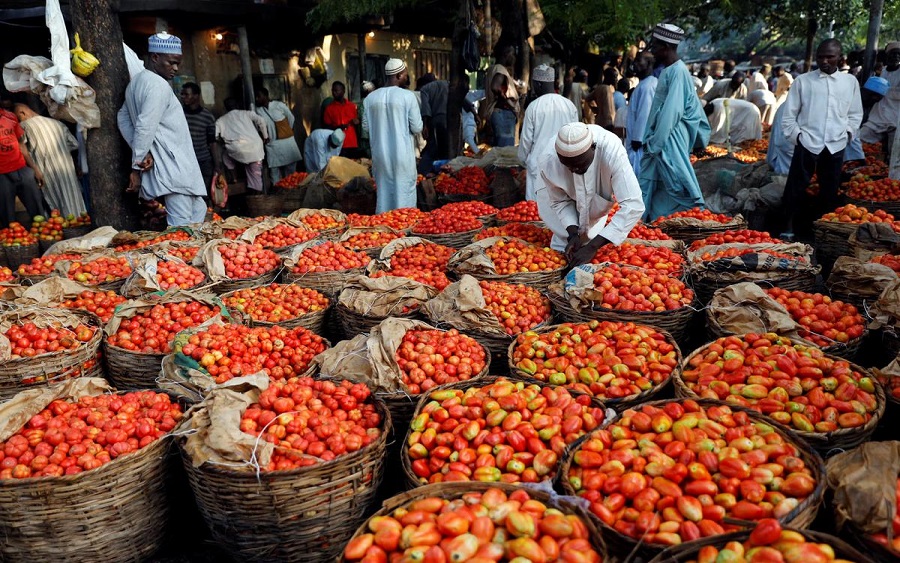A recent report has revealed that 47% of farmers in Nigeria have zero access to any kind of storage facilities during harvest.
By William Ukpe

SBM Intel, a geopolitical research and strategic communications consulting firm has revealed that 47% of farmers have zero access to any kind of storage facilities during harvest, which could rise up to as high as 60% for tubers, fruits and vegetables.
This was revealed in its report titled: “Nigerians just want to eat: Analysis of Farmers and Food Transporters challenges likely to impede National Food Security,” and seen by Nairametrics.
On post-harvest losses
- “Agricultural products are easily perishable while production remains seasonal, and demand for farm produce is present throughout the year,” SBM said.
They added that bridging the gap entails adequate storage for farm produce, however, farmers of these outputs may be unable to acquire their own storage facilities.
Citing that the absence of storage facilities forces Nigerian farmers to sell their harvest at low prices to middlemen who own warehouses.
- “In our survey, almost half (47%) of the farmers interviewed had no access to any kind of storage facilities. The lack of storage facilities contributes to post-harvest losses which could get as high as 60% for tubers, fruits and vegetables.”
They added that lack of storage, however, is not the only factor contributing to losses, as some losses occur during harvests and “others occur while the commodities are in transit, during offloading (due to poor handling), and in varying degrees in the entire process from farm to fork.”
The report urged that for Nigeria to avert a food security catastrophe, state and federal governments need to prevent “even higher food prices across the country through various short and long term measures.”
They said:
- “In the immediate, the government must fully reopen land borders and end the ban on using forex to import staple crops.
- “After placing maize on the list of items no longer eligible for foreign exchange only on 14 July 2020, the President announced the release of 30,000 tons of maize from emergency reserves on 2 September, and also gave approval to four firms for the importation of 200,000 tons of maize. This could replicate itself for items like rice and cassava in the coming months, items which millions of Nigerians depend on for sustenance.
- “For the longer term, wider adoption of irrigation, facilitating the provision of early maturing and drought-resistant crop varieties and a switch to climate-smart agriculture is the best way to guard against crop failure and poor yields.”
On changes farmers and transporters want
- The government should fix access roads and provide adequate transportation that is cheap, effective and efficient.
- An efficient rail system which will reduce the cost of transporting farm produce to the markets and improve food security.
- Security remains paramount followed by access to land and irrigation infrastructure.
- Financing and the availability of a sizeable storage where most of their farm products can be stored.
What you should know
- Founder and Chief Executive of Farmcrowdy Limited, Onyeka Akumah told Nairametrics that Nigeria loses N3.5 trillion to post-harvest loss every year due to the lack of proper storage facilities and the poor state of roads across the nation.
- The United Nations Food and Agriculture Organization (FAO) warned that Nigeria has emerged as one of the countries to be most hit by a food crisis across the globe in the face of the coronavirus pandemic which had worsened the already bad situation.
- The United Nations announced in 2020 that it will support Nigeria, Yemen, Afghanistan, Burkina Faso, South Sudan, and the Democratic Republic of the Congo with the sum of $100 million to prevent possible famine, which it says is caused by insecurity, climate change, and poor economic environment.




No comments :
Post a Comment